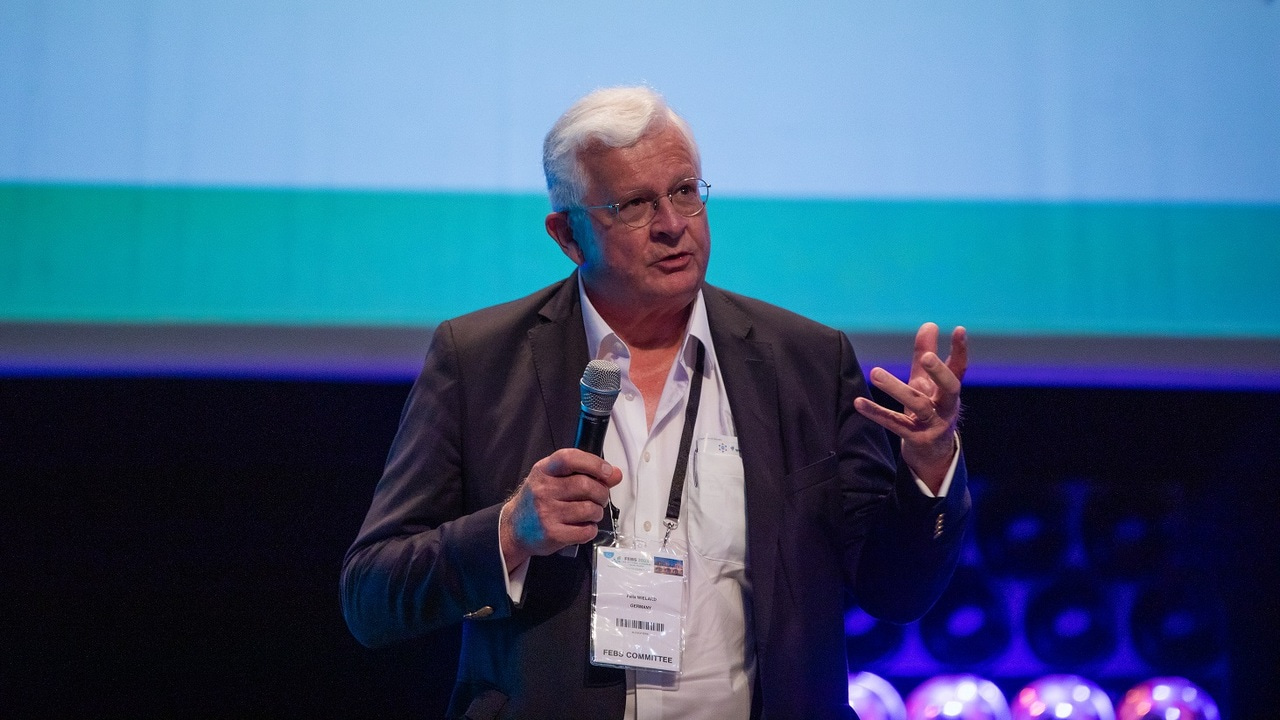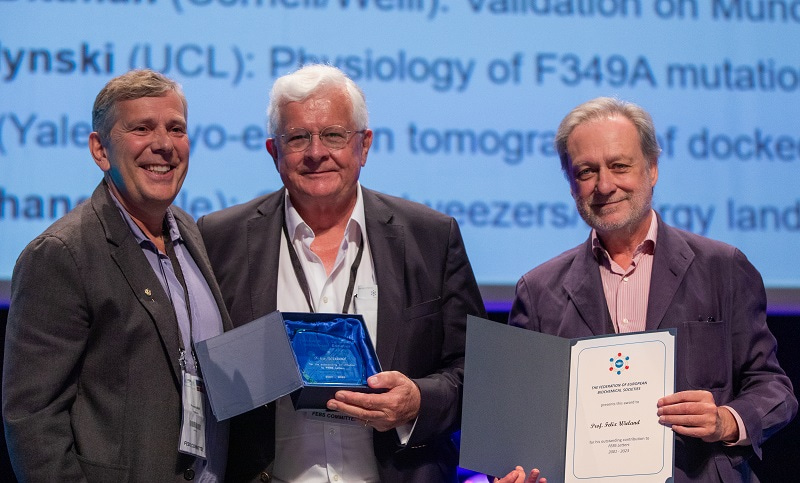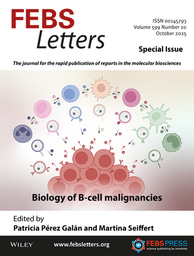Congratulations Felix Wieland, and thank you from FEBS Letters!

We just had the 47th FEBS Congress in Tours, France. The event’s organization was led by the French FEBS Constituent Society SFBBM and it trialed a range of innovations, such as a shorter format, a smaller host city, and closer involvement of the FEBS journals in the planning of the event. Characteristically, the scientific program was both excellent and broad in scope. The Plenary Lectures were outstanding (from Karen Vousden’s open plenary to Jim Rothman’s closing lecture), and the symposia, speed talks and poster sessions captured the exceptional science being carried out across Europe and beyond in the molecular biosciences.
And, mingling with the attendees and chatting to old friends and collaborators among the speakers, was someone who has attended many FEBS Congresses: Felix Wieland, Senior Professor of Biochemistry at Heidelberg University (Germany), and former Managing Editor of FEBS Letters.
Felix has recently turned 75 years old, and we want to wish him a happy birthday, as well as highlight – and thank him for – his contribution to FEBS Letters, which was also recognized at the FEBS Congress with an award for his outstanding contribution to the journal.

A remarkable career
Felix has worked extensively on the molecular mechanisms of coated vesicle formation, using the COPI-coated vesicles in the Golgi as a model. He is also researching the specificity and structural basis of protein–lipid interactions within the membrane, namely the specific interaction of a type of sphingomyelin with the transmembrane domain of the COPI protein.
He initially studied chemistry and did his PhD at the Max-Planck-Institute for Biochemistry (Martinsried, Germany) with Nobel Prize winner Feodor Lynen… who also happens to be his uncle. And Lynen is not the only Nobel laureate in his family: Felix’s grandfather Heinrich Wieland also won a Nobel Prize in 1927 for his work on the structure of bile acid. Moreover, Felix’s father was also a scientist and his father’s older brother was Theodor Wieland, an organic chemist and biochemist who did seminal work on peptide chemistry.
While his scientific heritage is remarkable, Felix’s contributions to the wider molecular life sciences ‘family’ are even more noteworthy. Felix has contributed extensively to the development of Heidelberg as a key center of research in the molecular life sciences. He set up the Heidelberg University Center for Biochemistry (BZH) in 1997, where he was Chair until 2003, and fostered interdisciplinary and interinstitutional connections via his Chairing of two collaborative research programs. He was also a President of the German Society for Biochemistry and Molecular Biology (GBM) – a FEBS Constituent Society – from 2005 to 2007. And of course he has represented the molecular life sciences through his membership to the German Academy of Scientists Leopoldina and to the Academia Europea.
Steering FEBS Letters
Felix was appointed Editor in Chief of FEBS Letters in 2001 and served in this role for over 20 years. FEBS Press journals have a very rich history contributing first to building, then strengthening, the FEBS brand, in which FEBS Letters played a very strong role from its launching in 1968 – now 55 years ago. It reached worldwide recognition as a platform for concise, urgently important, rapid publications and soon became an influential and well respected forum for biochemists and molecular biologists. It now has tens of thousands of published articles in its archive, with the much-higher-than-average cited half-life of more than 10 years – actually, this metric is 16 years these days. It became a journal where Nobel laureates such as Frederick Sanger, Peter Mitchell and Joshinori Oshumi published seminal, high caliber papers, where the green mice were featured, and where the ubiqutin ligase activity of MDM2 was reported… among many other breakthrough articles.
This remarkable success has been achieved thanks to the energy, enthusiasm and hard work of its managing editors: first Prakash Datta, followed by Giorgio Semensa, Matti Saraste, and then Felix. He was able to move the editorial office to BZH, very close to his department, where it still is, thanks to a generous agreement with Heidelberg University.
Felix took over when FEBS Letters had only just adopted an electronic manuscript handling system and steered the journal through the fast-changing world of scientific publishing with characteristic integrity, open-mindedness, and good taste. He continued to develop FEBS Letters into a rich and flexible platform for trustworthy and solid research studies, and a lively and diverse forum for scientific debate. An example was the collection ‘Jeff’s Views’, which he commissioned from the late Jeff Schatz, and then revisited under the name 'Jim’s Views' (written by Jim Rothman). He initiated the popular front half series ‘In a Nutshell’ for specific research topics, and the ‘Scientists Forum’ for discussion of science policy issues. Rich series of special issues were published during his years, including the ones collated for the annual FEBS congress each year with historical and artistic covers, which Felix was very much involved in designing. He introduced the FEBS Letters Prize and Congress lecture, first for young researchers, then selecting the prize winner from all authors. To celebrate the 50th anniversary of FEBS Letters in 2018, he organized a memorable symposium with outstanding speakers from all over the world.
We wish Felix many productive years to come, enjoying all facets of academic and personal life.
All images from the 47th FEBS Congress





Join the FEBS Network today
Joining the FEBS Network’s molecular life sciences community enables you to access special content on the site, present your profile, 'follow' contributors, 'comment' on and 'like' content, post your own content, and set up a tailored email digest for updates.